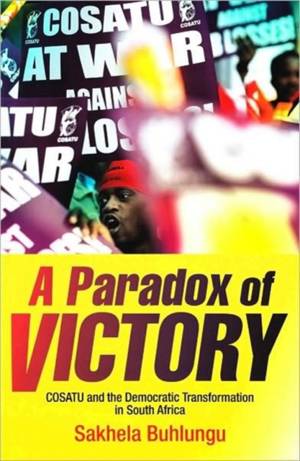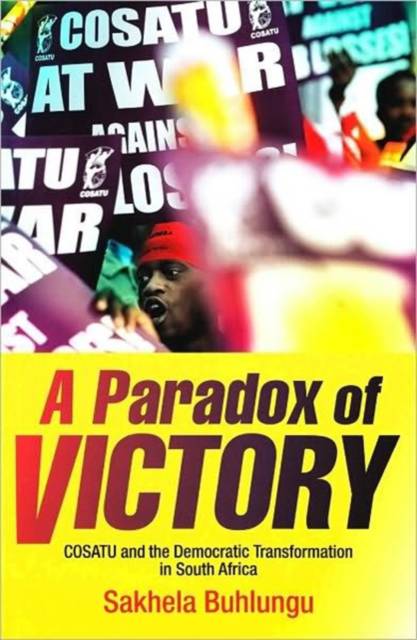
- Afhalen na 1 uur in een winkel met voorraad
- Gratis thuislevering in België vanaf € 30
- Ruim aanbod met 7 miljoen producten
- Afhalen na 1 uur in een winkel met voorraad
- Gratis thuislevering in België vanaf € 30
- Ruim aanbod met 7 miljoen producten
Zoeken
A Paradox of Victory
COSATU and the Democratic Transformation in South Africa
Sakhela Buhlungu
Paperback | Engels
€ 64,45
+ 128 punten
Omschrijving
The Congress of South African Trade Unions (COSATU) emerged from the anti-apartheid struggle as the largest and most powerful union federation in South Africa. Its member unions were spectacularly successful in organization building, and their power and influence was felt in the workplace, as well as in broader society. As the country's political adversaries began negotiating, COSATU became an important power broker weighing in on the side of democracy and full rights for workers. However, since 1994, COSATU has been losing organizational power as hundreds of leaders left for politics and business, and thousands of shop-floor activists were promoted out of the unions. The vibrancy of the movement has also been sapped by the effects of class formation and global economic restructuring. In this provocative account of union activism, author Sakhela Buhlungu examines the 'paradox of victory' that confronts COSATU today. Based on the author's participation in and research of unions for more than 20 years, this book openly explores COSATU's successes and failures and considers the long-term implications of its increasing political influence and diminishing organizational power.
Specificaties
Betrokkenen
- Auteur(s):
- Uitgeverij:
Inhoud
- Aantal bladzijden:
- 222
- Taal:
- Engels
Eigenschappen
- Productcode (EAN):
- 9781869141875
- Verschijningsdatum:
- 15/06/2010
- Uitvoering:
- Paperback
- Formaat:
- Trade paperback (VS)
- Afmetingen:
- 147 mm x 229 mm
- Gewicht:
- 340 g

Alleen bij Standaard Boekhandel
+ 128 punten op je klantenkaart van Standaard Boekhandel
Beoordelingen
We publiceren alleen reviews die voldoen aan de voorwaarden voor reviews. Bekijk onze voorwaarden voor reviews.











